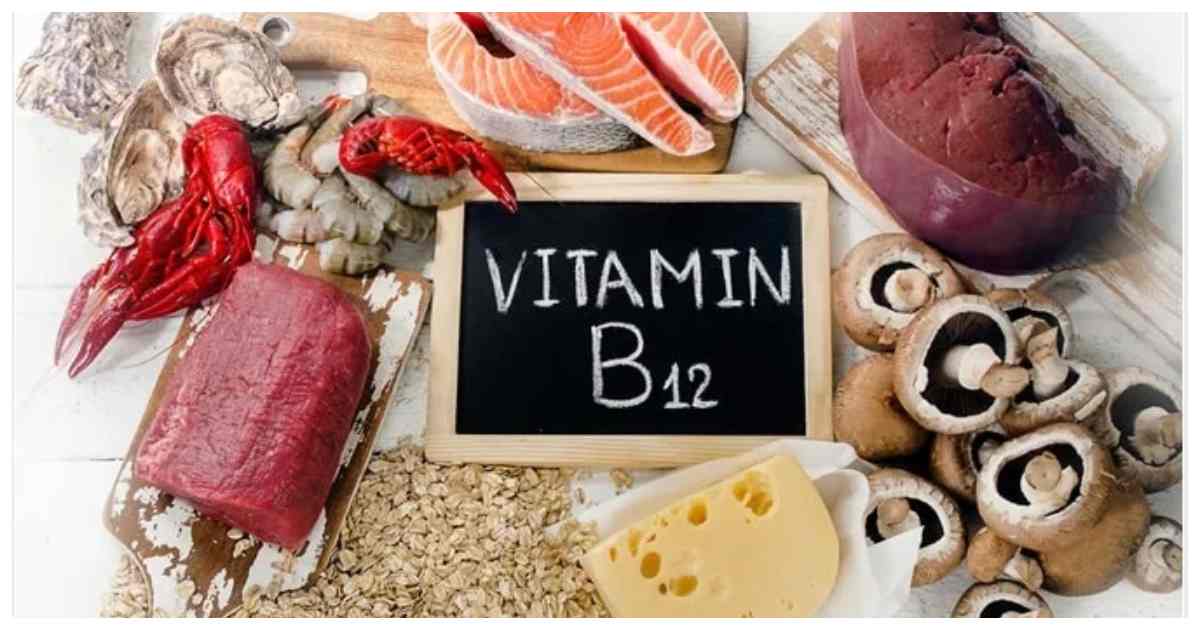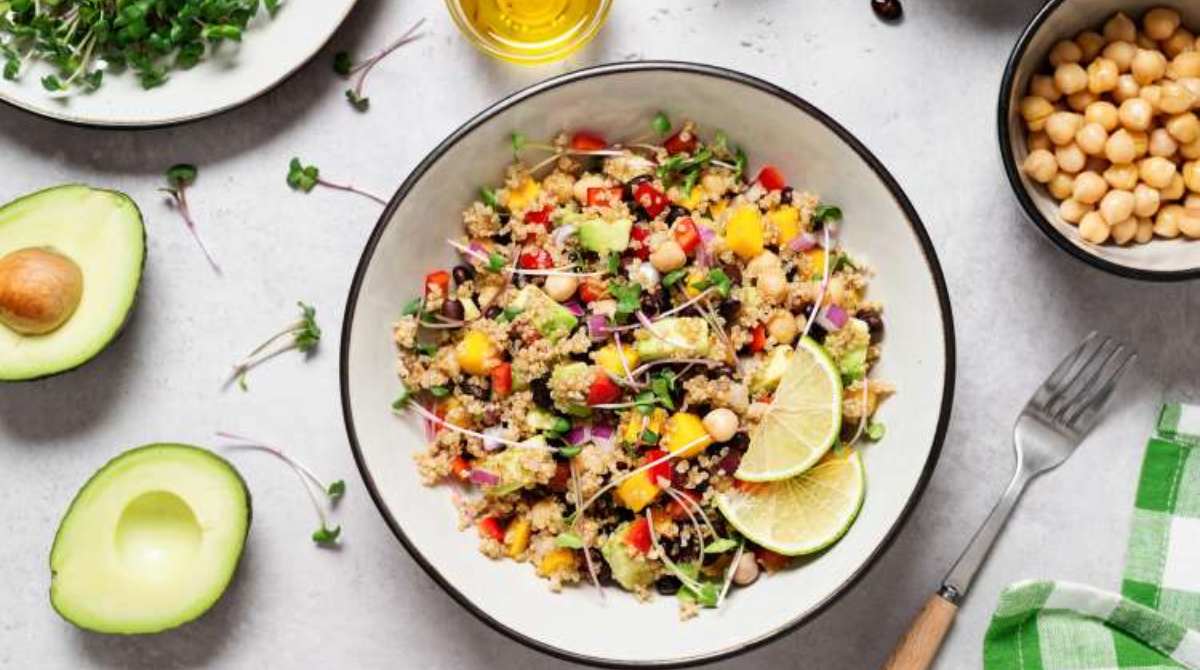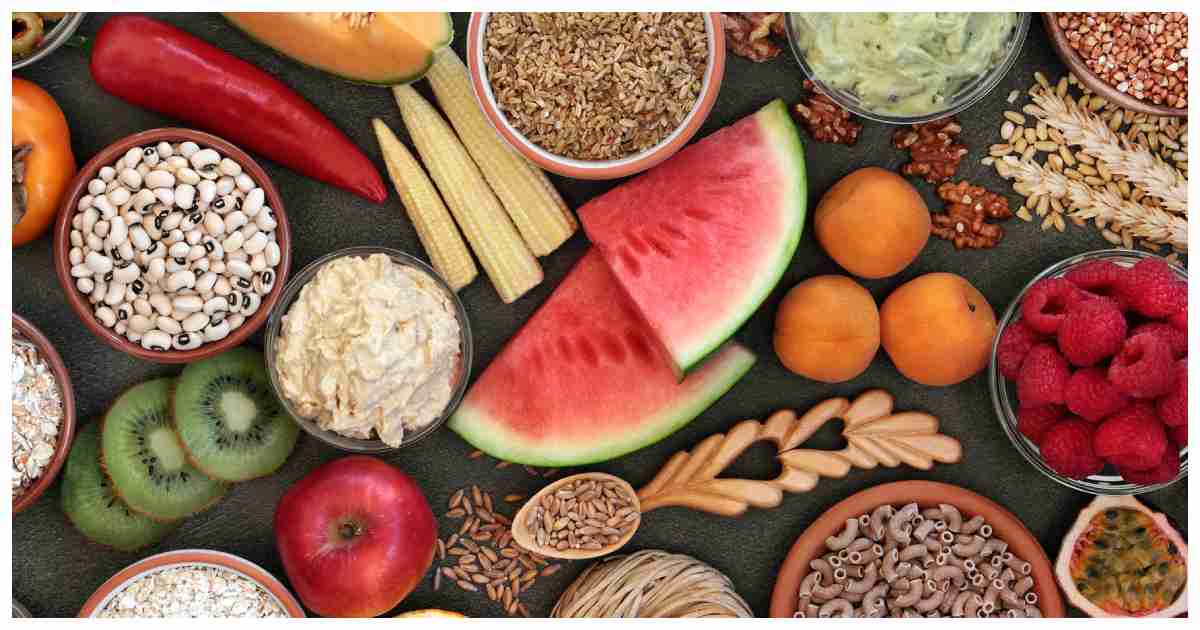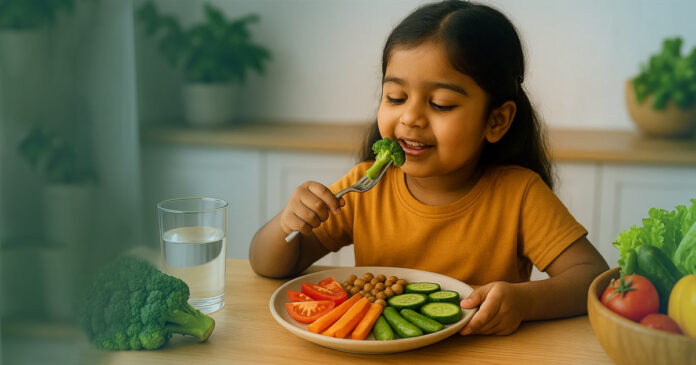Veganism has gained popularity in recent years, with parents now considering shifting their children to plant-based regimens.
However, a pure vegan diet raises important considerations.
Is it safe? Will all the nutritional requirements of growing children be met?
To answer many common queries, we have compiled a comprehensive list.
A Well-Planned Vegan Diet is Safe for Children
The Academy of Nutrition and Dietetics claims that a well-planned plant-based diet is safe and nutritionally sufficient to meet the health needs of children. However, Special emphasis needs to be laid on efficient planning because a strict regimen could lead to nutritional deficiencies.

Veganism May Result in Vitamin B12 Deficiency
Meat is an excellent source of Vitamin B12, a nutrient essential for neurological development and red blood cell production. A deficiency of Vitamin B12 can lead to anaemia and neurological impairment.
Supplements need to be taken, or fortified cereals can be taken, to provide sufficient Vitamin B12 if the child is not consuming meat at all.

Protein Requirements Can Be Met With Plants
Meat products gained popularity because of their high protein content. They contain all the essential amino acids needed to maintain health.
Plant proteins may be deficient in some essential amino acids, but a combination of legumes, soy products, grains, and nuts can fulfil these protein requirements.

Vegetable Sources of Iron are Poorly Absorbed
Non-heme iron in plant-based sources is poorly absorbed, increasing the probability of an iron deficiency.
Therefore, iron absorption needs a boost in such diets. This problem can be overcome with Vitamin C-rich sources like citrus fruit (orange, grapefruit, etc.).

Calcium and Vitamin D Need Careful Consideration
Animal milk tends to be rich in Calcium. However, these requirements could be met with leafy green vegetables and soy milk.
Vitamin D supplements or adequate sunlight exposure can also fulfil these requirements. If you’re giving your children Vitamin D supplements, make sure to check in with the doctor for an appropriate dosage.

Omega-3s are Essential for Brain Health
Chia seeds, ground flaxseeds, and algal oil are rich sources of Omega-3 fatty acids, which are critical for brain development and maintenance.
This property makes these sources alternatives to marine animals rich in Omega-3s, like salmon and cod.

Children May Need Larger Portions
Energy density varies among plant and animal sources. Plant-based diets might fail to meet the caloric needs of growing children; hence, taking frequent meals and increasing portion sizes are good strategies to meet caloric requirements.

Fibre Intake Must Be Monitored
Dietary fibre is essential to promote gastrointestinal motility and prevent constipation. However, an overload could slow down the absorption of nutrients. To moderate fibre intake, consider eating peeled fruits and vegetables. White bread can also be eaten.

The Paediatrician Must Be Kept in the Loop
If parents want to feed their children a vegan diet, they must take regular appointments with their paediatrician, who will use growth charts and lab investigations to track children’s development. Furthermore, early detection of deficiencies can be promptly managed.

There is No One-Size-Fits-All Approach
Some children may thrive on a vegan diet, while others may have sluggish growth and poor health. A flexible approach should be encouraged because there is no universally accepted one-size-fits-all approach.
It’s important that you know your child’s needs and then decide on a diet that suits him/her.

A Vegan Diet Could Work With Efficient Management
Veganism is indeed safe and healthy, but that doesn’t preclude efficient management and close monitoring.
Health professionals must be consulted, nutritional deficiencies should be promptly addressed, and flexible approaches should be encouraged. Done well, plant-based diets could be cost-effective and environmentally sustainable in the long term.
Stay tuned to Brandsynario for the latest news and updates.



































